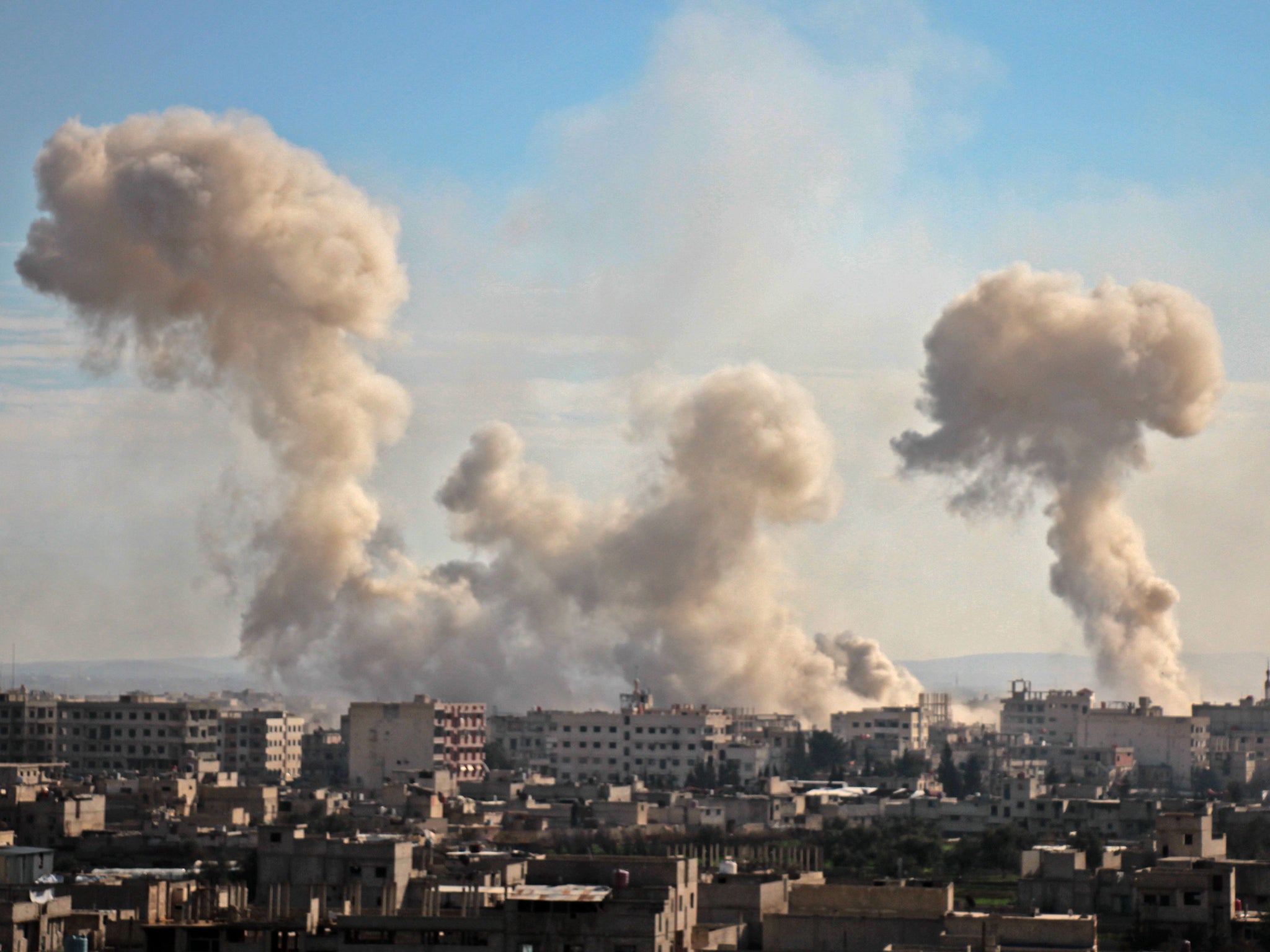Syrian women forced to trade sex for aid deliveries, say reports
Sexual exploitation in war-torn country continues, despite concerns raised to UN and aid organisations in 2015

Your support helps us to tell the story
From reproductive rights to climate change to Big Tech, The Independent is on the ground when the story is developing. Whether it's investigating the financials of Elon Musk's pro-Trump PAC or producing our latest documentary, 'The A Word', which shines a light on the American women fighting for reproductive rights, we know how important it is to parse out the facts from the messaging.
At such a critical moment in US history, we need reporters on the ground. Your donation allows us to keep sending journalists to speak to both sides of the story.
The Independent is trusted by Americans across the entire political spectrum. And unlike many other quality news outlets, we choose not to lock Americans out of our reporting and analysis with paywalls. We believe quality journalism should be available to everyone, paid for by those who can afford it.
Your support makes all the difference.A new report has found that local men distributing food and other international aid in Syria have been withholding deliveries from women, unless they agree to give sexual favours.
“Examples were given of women or girls marrying officials for a short period of time for ‘sexual services’ in order to receive meals; distributors asking for telephone numbers of women and girls; giving them lifts to their houses ‘to take something in return’ or obtaining distributions ‘in exchange for a visit to her home’ or ‘in exchange for services, such as spending a night with them,’” the new United Nations Population Fund (UNFPA) study found.
The abuse was widespread across governorates in Syria’s south, and particularly affected vulnerable women and girls “without male protectors”, such as widows, divorcees and female IDPs (Internally Displaced Persons), said the 2018 Voices from Syria report, which examines gender-based violence.
An aid worker who spoke to the BBC said that in their experience, some women were refusing to go to aid distribution centres because “people would assume they had offered their bodies for the aid they brought home”.
The UN and partner charities told the BBC they had zero tolerance policies on exploitation, and were not aware of any cases or complaints against partner organisations working on the ground.
However, similar warnings about abuse were raised in 2015, highlighting the difficulties humanitarian agencies face when working in places with no access for international staff, relying on local government and third-party organisations.
A June 2015 investigation by the International Rescue Committee (IRC) questioned 190 women and girls from Dara’a and Quneitra, and found 40 per cent had experienced sexual violence while trying to access aid.
The findings along with a focus group study conducted in a refugee camp in Jordan were presented to a UNFPA meeting in Amman that year, leading several international organisations who attended to reform their monitoring and complaints mechanisms in Syria.
However, the abuses identified in the new study raise questions about the effectiveness of the current checks and balances in place.
Danielle Spencer, a humanitarian adviser who conducted the Jordan study, told the BBC that the aid sector wilfully ignores gender based violence to ensure it can still get aid to inaccessible parts of Syria.
“Sexual exploitation and abuse of women and girls has been ignored; it’s been known about and ignored for seven years,” she said.
“Somewhere there has been a decision made that it is OK for women’s bodies to continue to be used, abused and violated, in order for aid to be delivered for a larger group of people.”
Join our commenting forum
Join thought-provoking conversations, follow other Independent readers and see their replies
Comments